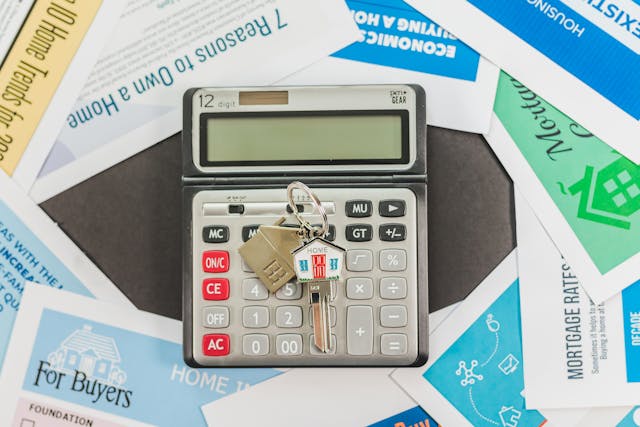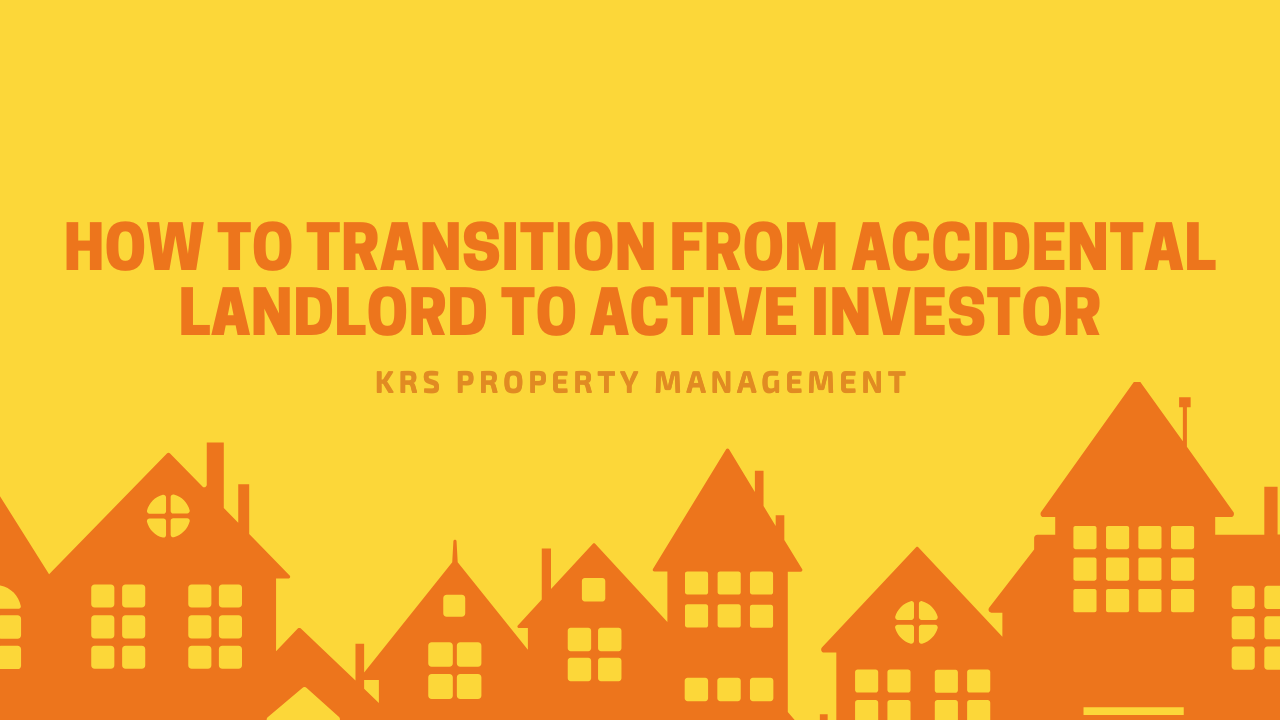Key Takeaways:
- Mindset Is Everything: Moving from accidental landlord to active investor means treating your property as a business—focused on data, strategy, and measurable growth.
Structure Builds Stability: Setting up legal entities, separating finances, and using professional management tools protects assets and strengthens financial performance.
Professional Guidance Drives Success: Partnering with experts like KRS Property Management helps optimize rental performance, ensure compliance, and uncover long-term investment opportunities.
The real estate market often welcomes individuals who never thought of becoming landlords. Such “accidental landlords” often find themselves managing rental properties by circumstance and not by deliberate choice.
Some inherited a family property, or relocated from work and decided to rent out their former residence, or chose to hold a property that could not yet be sold at a profitable amount.
Regardless of the reason, these owners later discover that, apart from rent collection, managing a rental property requires other skills, such as operational discipline, financial insight, and a suitable strategy.
A different management approach and a significant shift in mindset are needed to transition from an accidental landlord to an active real estate investor. Such a transformation will involve the following:
Building a portfolio with the aim of long-term profitability
Decision-making through data-driven approaches
Treating rental property ownership as a business instead of an additional responsibility
In this article, the team at KRS Property Management will explain the essential steps, challenges, and considerations for individuals who seek to transition from accidental landlords to real estate investment professionals.
HOW MUCH IS YOUR PROPERTY WORTH?
BOOK A FREE RENTAL ANALYSIS TODAY.
Turning Accidental Landlording into a Strategic Real Estate Investment
1. Understand the Starting Point
Accidental landlords come into the rental market by chance and not by choice. For example, an individual who inherits the parents' property or someone who decides to rent out their condo after buying a bigger family home.

At the initial stage, the rental income can appear to be a useful supplement to help offset expenses and cover mortgage payments. However, accidental real estate investors may encounter difficulties if they fail to have a structured plan.
Most accidental landlords:
Set rents less than or above the market value
Underestimate the importance of performing scheduled maintenance
Are unfamiliar with landlord-tenant laws in the area
Make property management decisions reactively instead of strategically
All these lead to tenant turnover or reduced returns. It is essential to recognize the starting point for tenant retention, which leads to a secure rental income.
The journey to becoming an active investor from an accidental landlord requires acknowledging that property ownership involves more than earning passive income. It is a business venture that needs steady oversight, capital, and attention.
2. Have an Investor’s Mindset
One of the crucial transformations in this journey is the mindset shift. While an accidental landlord thinks of owning a property, an active investor reasons in terms of managing assets. An active investor's mindset is strategic, goal-oriented, and data-driven.
Every decision (including refinancing a loan, renovating an apartment, or setting rent) is assessed based on the impact it has on long-term equity growth, return on investment, and cash flow.
To adopt an investor's mindset, accidental landlords should do the following:
Define their financial goals from the onset: Do you want portfolio diversification, tax benefits, appreciation, or cash flow?
Create a business plan: This will involve a structured strategy for portfolio management and expansion.
Track key metrics: Recognize and monitor metrics such as cash-on-cash return, capitalization rate, and net operating income (NOI).
Separate property management from emotions: When it involves rental properties, it is no longer a personal asset but a business investment that responds to market forces.
Having this professional mindset will also include ensuring that the property meets competitive market expectations, maintaining legal and ethical standards, and treating renters as customers.
3. Assessing the Current Performance of the Property
An accurate assessment of the property’s current performance before making further investments is essential.

Perform a comprehensive financial review by:
Analyzing income and expenses: Review rental income, management fees, insurance, taxes, and maintenance costs
Assess market rents: Use professional appraisals or local listings to compare your current rents to the market rates.
Identify inefficiencies: Check if you can reduce costs without sacrificing quality.
Next, evaluate the physical condition of the property. Inspect the property to know if it requires essential upgrades or has areas that need maintenance that will increase tenant satisfaction and value. Experience shows that updated fixtures, improved curb appeal, and modernized kitchens often attract better tenants and yield higher rents.
Then, consider the opportunity costs.
Assess and compare the property to similar ones in the market. If it underperforms relative to market benchmarks, you may consider using alternative strategies such as refinancing, converting it to a different rental model (for example, from long-term rental to short-term rental), or selling it.
An assessment will provide the operational and financial baseline, which you can use to make future investment decisions.
HAVE A QUESTION?
ASK A PROPERTY MANAGEMENT EXPERT.
4. Establish Proper Legal and Financial Structures
To operate a rental property as an active investor, you need to proceed beyond informal ownership towards a professional structure that optimizes tax efficiency and protects assets.
You can do this by:
Forming a legal entity: To hold properties, most investors establish a Limited Liability Company (LLC) or other business entities. This will help to separate personal assets from business liabilities and simplify accounting. Consult a legal counsel to determine the most suitable entity type based on portfolio size and jurisdiction.
Financial management: To manage finances as an active investor, do the following:
Open dedicated bank accounts: Rental property finances should be separated from personal money if you want to improve transparency and simplify bookkeeping.
Implement accounting software: Use convenient accounting tools and software to track tax deductions, income, and expenses efficiently.
Engage a Certified Public Accountant (CPA) specializing in real estate: A tax professional will help ensure compliance with local laws and maximize deductions (such as mortgage interest, repairs, and depreciation).
5. Build a Professional Support Network
As an active investor in real estate, your investment will not be successful by operating in isolation. Having a professional support network will give you access to opportunities, accountability, and expertise.

Key members of your team should include:
Property manager: To oversee the daily operation of the rental property
Accountant/CPA: For financial reporting and tax management
Attorney: To ensure compliance with local regulations, leases, and contracts
Real estate agent or broker: For local market trends
Contractors and inspectors: For reliable maintenance, repairs, and renovation support
Final Thoughts
Transitioning from accidental landlord to active investor involves more than a change in property management. It entails a change of strategy, structure, and purpose. If you want to take the next step, real estate provides an opportunity to build long-term wealth through informed, strategic action.
At KRS Property Management, we help clients turn passive ownership into purposeful investment. From optimizing rental performance and streamlining operations to identifying growth opportunities and ensuring full legal compliance, our team provides the expertise and insight you need to scale confidently.
If you’re ready to take the next step, let KRS Property Management help you transform your rental property into a long-term wealth-building investment.







